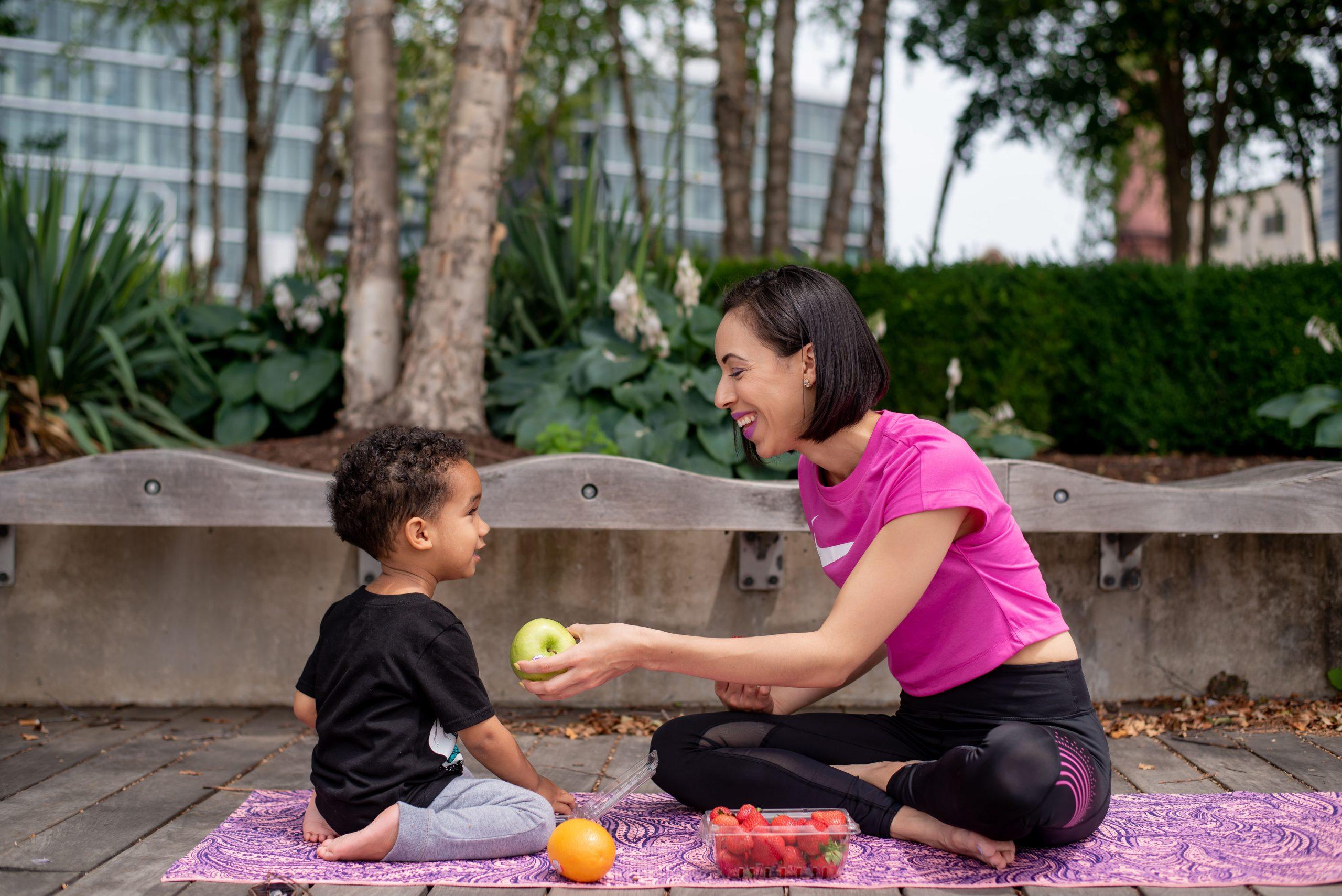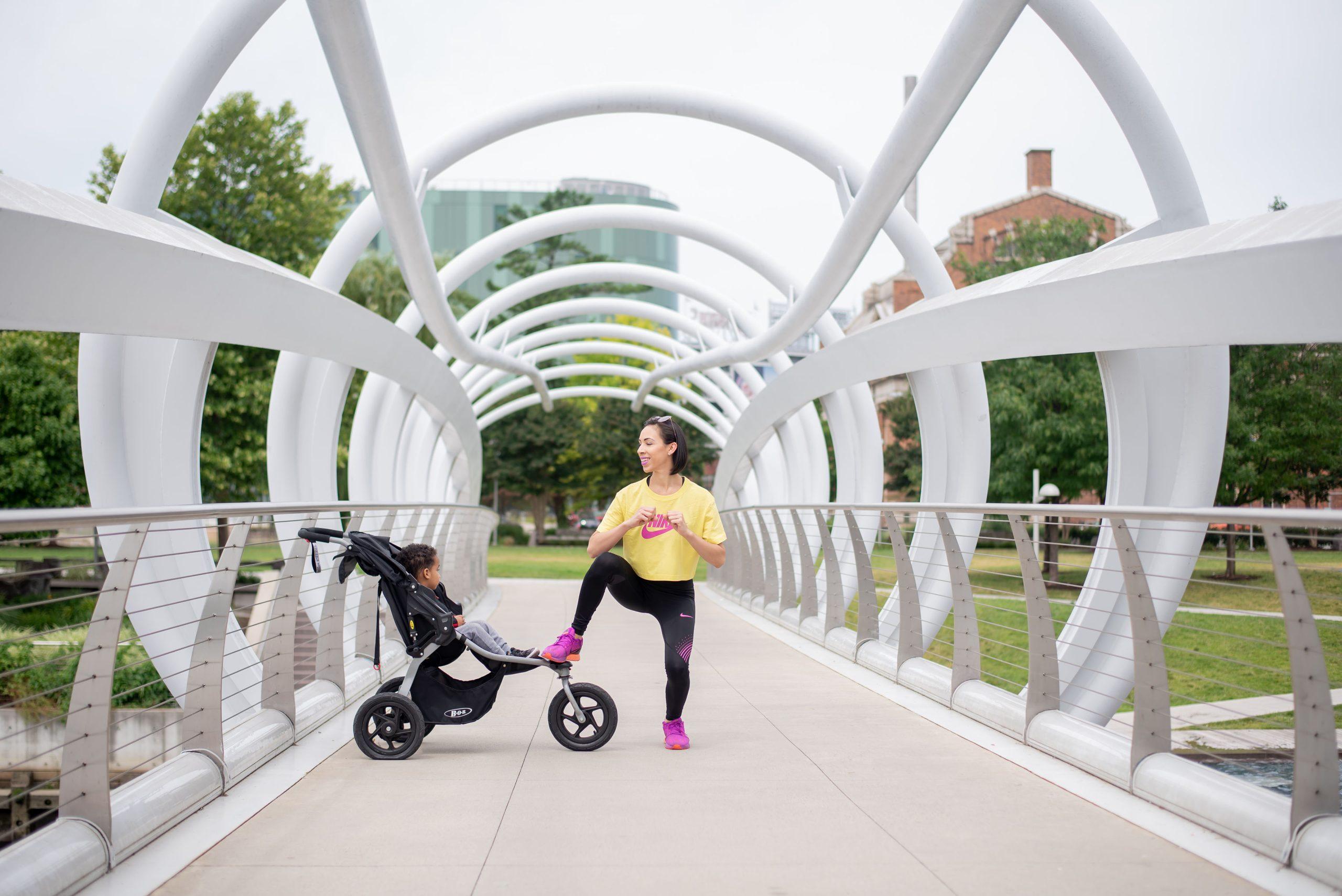Black Maternal Health Week occurs every year from April 11-17 and was officially recognized by the White House in 2021. This year’s theme is “Our Bodies Belong to Us: Restoring Black Autonomy.” The week brings together dozens of global organizations who are fighting to end maternal mortality globally.
Recent data shows an alarming rise of maternal mortality in the US, exacerbated by the pandemic, and especially affecting black women. Due to this, there is a renewed focus on Black midwifery care and Black-led doula services.
We spoke to Maria Modamwen, a DC-area based doula a few questions about her work in this area. You can find her here, and on IG and Twitter.

1. Why did you decide to become a doula?
I became passionate about work as a doula after my own pregnancy and labor experience. At 6 months pregnant, I was blessed with the opportunity to change providers. After the switch, I finally felt supported and like my journey mattered. Changing providers wasn’t even a thought until my doula encouraged me to seek someone new. I did not know this was a possibility and didn’t even have the energy to seek someone new. Without my doula’s encouragement, knowledge, and support through that process I do not think I would’ve ended up having the positive labor experience that I had. It is now my goal to advocate and spread the knowledge of the life changing experiences a doula can provide for pregnant and postpartum women.
2. What types of care do you offer?
I offer pregnancy and birth support. I also do consultations for women who are in early pregnancy and don’t want to hire a doula but need advice on resources and support on pregnancy and labor related topics.
3. What is your philosophy on birth?
Women’s bodies are made for birth. It is important to find a supportive medical team that will allow your body to birth your baby when you and the baby are ready. Minimal interference with the birth process should be highly supported if there are no other life-threatening medical conditions.

4. In your view, what types of issues affect black women and women of color specifically in the pregnancy and birthing phases when interacting with the traditional medical system?
There are several issues at hand that can affect how black women are treated in their pregnancy and birth journey and ultimately their livelihood. These issues are the result of existing historical disparities in various social determinants that affect people of color and continue to be deeply rooted in racism and discrimination. With that said, the biggest challenge I see is the implicit bias black women and women of color face in their pregnancy journeys. Black women are often undervalued by their healthcare providers due to this bias.
The United States has the highest maternal mortality rate and it’s because Black women are dying at an alarmingly high rate. According to the Centers for Disease Control and Prevention Black women are 3 to 4 times more likely to die in childbirth. Black women are less likely to be heard and taken seriously when they speak up about pregnancy or postpartum related health concerns.
Remember the Serena Williams story? It didn’t matter that it was Serena Williams in their care. It didn’t matter that she is a well off, successful woman. She is still a black woman and faced implicit biases due to her race. Serena was ignored despite speaking up for her health concerns, and specifically explaining her medical history of what she was experiencing. Ultimately, she was treated for her condition, but not immediately when first notified. This could’ve gone very wrong if the medical scenario was different. Sadly, it often does. It is a scary world for black women.
5. How do you alleviate these concerns?
As your doula, I am aware of implicit biases towards women of color. It is important for me to make your concerns and feelings a priority. I will hear you and validate your experiences, and advocate for you when needed during the birth. This may look like further explaining something the medical provider said. Or telling the medical provider you and your partner would like more time to discuss the options presented. It could also be encouraging you to speak up and not forget to ask the questions you need answered.
My goal is to help families find the evidence-based resources needed to help you have educated discussions with your provider during pregnancy. This way, you are informed and empowered for your birth. I also encourage you to surround yourself with positive affirmations and positive birth stories.

6. You’re dedicated to exercise — how do you incorporate that into your doula services?
I am an advocate of exercise. If you are cleared by your doctor to exercise, I encourage moms to move for at least 30 minutes a day. This can be as simple as walking or anything that will increase your heart rate for at least 30 minutes. I will check in periodically and remind you of the benefits (mental and physical) of consistently working out daily throughout your pregnancy. Many medical conditions that Black women and women of color face during pregnancy may be limited or prevented simply with diet change and consistent exercise.
7. Anything else you want to share as we celebrate Black Maternal Health Week?
As a black woman or woman of color, I encourage all newly pregnant women or anyone looking to get pregnant to take the time to find a medical provider that you are comfortable with and that you feel seen with. Just because you’re newly pregnant, you do not have to go with your current OBGYN or Medical Practice. You are allowed to interview medical practices and their doctors. It is important that you interview and ask all the questions and feel comfortable and heard as a woman of color.
Once you’ve found your medical provider, you can now start the process of finding your doula. You can use this website, www.blackdoulas.org or ask for a referral within your community to find what you are looking for. Black Maternal Health Week is an important time to remind everyone that black women deserve the quality care during and after childbirth.















